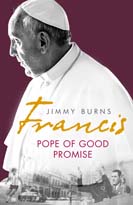I remember Ian Paisley personally and professionally.
I covered his politics as a journalist during some of the worst and some of the better days in Northern Irland. I reported on the public man before having the chance to meet the private man.It was in the early 1990’s that I encountered the private and the public man for the first time. During a flight from London to Belfast we sat next to each other. It was still a difficult time in Northern Ireland. The IRA were engaged in a new bombing campaign on the British mainland , while unionist loyalist paramilitaries remained fully armed and also active.
As a Catholic British citizen, I was firmly opposed to the IRA’s violence and Paisley’s DUP party which also seemed to epitomise the religious bigotry and extreme nationalist politics at the heart of the Northern Ireland’s troubles. A few years earlier Paisley had mobilised a mass protestant protest against any settlement with the Catholic minority in Northern Ireland and Dublin. He had later gone on to stage protests against the visit of Pope John Paul 2 to the UK.
On that flight we shared , the Paisley I got to know in private was very different to his public persona I had reported on as a journalist covering the Nothern Ireland. He was engaging, conciliatory, thoughtful and with a decent sense of humour. By the time we landed in Belfast, I felt that a new political dawn was approaching-as indeed it proved.
Paisley, with an important part being played by other significant parties including the British and Irish prime-ministers and the IRA high command, went on to move from the politicis of confrontation and ‘no surrender’ to the politics of dialogue and compromise, sharing government with his fomer sworn ennemies. He came to believe that it was possible for people of different religious faiths and different nationalist politics to live together. This was one of the key elements that made Northern Ireland’s Good Friday agreement possible. It did not satisfy everyone, but it brought about a settlement for the region that a majority accepted as serving the common good of Catholics and Protestants, British and Irish.
Paisley showed that the men who deserve a noble place in history are those who are prepared to walk that extra mile to listen to the other, and find ways of beter understanding the other -politics as a way of being a true citizen, leadership as statesmanship. May he rest in peace.

